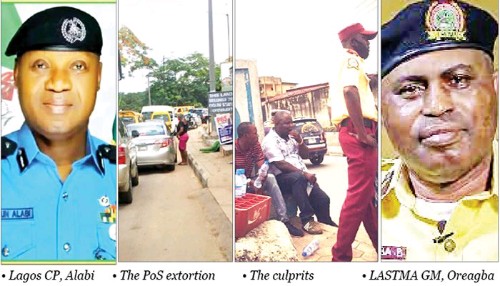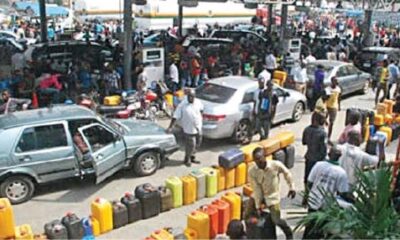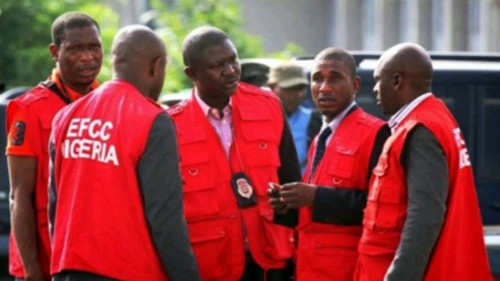The Economic and Financial Crimes Commission (EFCC) has placed international schools charging tuition in dollars and other foreign currencies under surveillance as part of measures to reduce the pressure on the naira.
The Head, Media and Publicity, EFCC, Dele Oyewale, confirmed the development to one of our correspondents on Thursday, and said the agency would clamp down on schools and other organisations charging foreign currencies.
He reiterated that it was illegal for schools, hotels and firms operating in the country to charge for services in foreign currencies.
He explained that the 7,000-man special task force on dollar racketeers operating across the EFCC zonal commands was monitoring the schools and other organisations that might be involved in the illegality.
In a move to curb the free fall of the naira against the greenback, the ant-graft agency in February summoned the proprietors of private universities and other schools charging tuition in dollars.
The task force also conducted several raids in Abuja, arresting currency traders suspected to be speculating against the naira.
Worried by the depreciation of the national currency, the Finance Minister and Coordinating Minister for the Economy, Wale Edun, had met with the Governor of the Central Bank of Nigeria, Yemi Cardoso and the EFCC Chairman, Ola Olukoyede, to proffer solutions to the naira crisis.
Speaking on Thursday, in response to questions about the agency’s efforts to address forex racketeering and stabilise the naira, the EFCC spokesman, Oyewale, said the task force was set up ‘’to ensure that those breaking the rules find their way back to the right path so that the wrath of the law will not be on them.’’
Oyewale said it was illegal for any business operating in the country to charge for its services in foreign denominations apart from the naira, vowing sanctions for any breach of the law.
He stated, “The task force is not just to monitor naira abuse alone but for the whole economy. So, the EFCC is working to ensure that those breaking the rules find their way back to the right path so that the wrath of the law will not be on them.
“Yes, everyone knows that it is illegal to charge in other denominations apart from the naira. Whether in Chinese or American currency, any transaction that is not denominated in naira in Nigeria, the EFCC is against it.
“So, the task force is in place to check that and Nigerians should be happy about that. It is not just schools, hotels but other entities across the country that are doing this must come back to the naira as our legal tender.’’
He added, “Naira is the symbol of our economy and everything that has to do with the economy in Nigeria must be done in naira.’’
Asked if the schools, hotels and other businesses under watch would be punished if caught violating the law, Oyewale responded, ‘’Certainly, they are aware that we are watching them.’’
The National Union of Teachers declared its support for the EFCC over the move to sanction erring international schools charging in dollars.
The NUT President, Titus Amba, made this known in an interview with one of our correspondents in Abuja.
He said, “Though I am not meant to speak on this because these schools are private schools. However, it is necessary to note that this is Nigeria and if you are going to charge for services, it should be in the national currency which is naira.
“So, we support the EFCC on its mission. Acts like these are sabotaging the economy so we support the EFCC and the Federal Government wholeheartedly.”
The Executive Director of the Civil Society Legislative and Advocacy Centre, Auwal Rafsanjani, urged the government to review its memorandum of understanding with foreign schools and other businesses demanding payment in foreign currencies, noting that the economy was suffering on account of this.
“This cannot happen in the UK, it cannot happen in America, it cannot happen in any serious country. And that is why the economy is suffering because they have destroyed the value of the naira.
“So, we commend EFCC for rising to at least bring this issue to the public, because in the Memorandum of Understanding that they signed with the Nigerian government, there is nowhere the government permitted them to be charging in dollars. If there is anything like that, then we will need to seek reversal of that,” he said.
The group further asked the government to monitor the operations of all businesses demanding payment in foreign currencies.
Rafsanjani noted, ‘’Not only the foreign schools but even hospitals and real estate. Let the government review all those things, and if there were any fraudulent insertion of payment in dollars, the government should stop that as part of measures to revitalise the economy and our currency.”
Also weighing in on the matter, the National Coordinator of the Human Rights Writers Association of Nigeria, Emmanuel Onwubiko, stated that payment of dollars to foreign-owned institutions was unlawful, urging the EFCC and other relevant agencies to take action against the concerned organisations.
He said, “The currency that we use in Nigeria is the naira, and there is no reason why any private institution or any service provider should charge their customers in a foreign-denominated currency because that is unlawful.
“That being the case, the relevant law enforcement authority is supposed to act decisively to ensure that this kind of illegality is brought to an end. It’s not something that should be allowed because it also affects the naira, it makes the naira to become somehow worthless.’’
Onwubiku challenged the EFCC, CBN and other agencies ‘’to wake up to save the naira from collapsing. ‘’
“It’s not something that the government should just sit down and watch, they should make sure that the naira gains its respectability in the comity of nations,” he insisted.
The Executive Director, the African Centre for Media and Information Literacy, Chido Onumah, on his part, said the situation was a pointer to the lack of a regulatory system to check the activities of foreign schools.
The situation, he said, has also placed a burden on the public school system, urging the government to reinvest in public schools.
The president of the Parent-Teacher Association of Nigeria, Haruna Danjuma, explained that the EFFC had the right to decide on such schools.
He said, “I understand these schools are set up for commercial purposes, they are not public schools. As PTA, we have not received any complaint from any parent from any of such schools that they are being charged in dollars. But is the Federal Ministry of Education not aware of all these? Is it okay with them? Will they say they know nothing about it? If EFCC wants to pick them up now, no problem they should do so. We represent public schools.”
Credit: The Punch
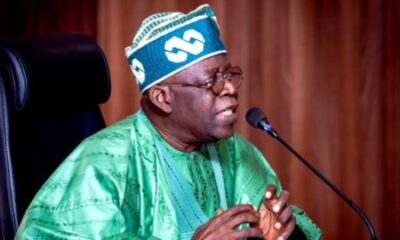
 BIG STORY3 days ago
BIG STORY3 days ago
 BIG STORY3 days ago
BIG STORY3 days ago
 BIG STORY2 days ago
BIG STORY2 days ago
 BIG STORY5 days ago
BIG STORY5 days ago
 BIG STORY4 days ago
BIG STORY4 days ago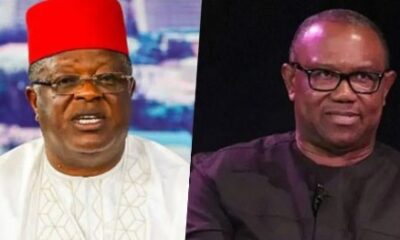
 BIG STORY3 days ago
BIG STORY3 days ago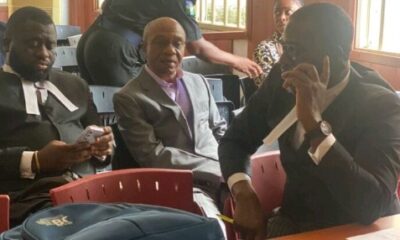
 BIG STORY4 days ago
BIG STORY4 days ago
 BIG STORY3 days ago
BIG STORY3 days ago



